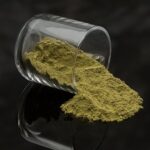Kratom (Mitragyna speciosa) is a plant native to Southeast Asia, used traditionally to relieve fatigue, pain, and improve focus. As kratom becomes more widely known, questions arise within the Muslim community: Is kratom halal or haram?
🧕 Understanding Kratom Through the Lens of Islamic Ethics
In Islam, the general principle is that everything is permissible (halal) unless there is clear evidence of harm or prohibition. The Quran states:
“He has explained to you in detail what is forbidden to you—except under compulsion of necessity…”
(Surah Al-An’am 6:119)
Thus, kratom’s ruling depends on whether it causes harm, intoxication, or addiction.
🔍 Key Islamic Principles in Determining Halal vs Haram
- No Intoxication: Islam strictly forbids substances that intoxicate the mind or impair judgment. The Prophet ﷺ said:
“Every intoxicant is khamr, and every khamr is haram.”
(Sahih Muslim) - No Harm: Islam prohibits self-harm and anything that leads to long-term damage:
“Do not throw yourselves into destruction with your own hands…”
(Surah Al-Baqarah 2:195) - No Addiction: Anything that causes dependency or enslaves the soul is discouraged. Prophet ﷺ said:
“Do not harm yourself or others.”
(Sunan Ibn Majah)
📚 Scholarly Opinions on Kratom
There is currently no unanimous fatwa regarding kratom. However, kratom is often compared to substances like coffee, tobacco, or mild stimulants — which are considered makruh (discouraged) if they cause harm, or haram if they intoxicate or endanger life.
🗣️ Example of Islamic Viewpoints:
- Majelis Ulama Indonesia (MUI): Has not yet issued a specific fatwa regarding kratom. However, MUI generally declares that any substance that intoxicates or significantly harms the mind and body is considered haram.
- Dar al-Ifta’ Egypt: Has previously ruled that substances with narcotic or harmful properties, even if mild and non-intoxicating, may be prohibited if they threaten public health or are used abusively.
- Islamic Jurisprudence Councils: Often categorize substances based on their effects. If a substance causes intoxication, addiction, or significant harm, it is usually deemed haram—even if it originates from a natural source.
🧪 Is Kratom Intoxicating?
Most users describe kratom’s effects as stimulating in low doses and sedative in higher doses. It does not cause drunkenness like alcohol, but some heavy users may experience altered mental states or dependence.
If kratom leads to addiction, harm, or mental impairment, many Islamic scholars may rule it as haram based on its effect, not its name.
✅ Conclusion: A Personal Ethical Choice
In conclusion, kratom may fall into three categories depending on the context:
- Halal: If used in moderation, with no harm or addiction, and for medical benefit.
- Makruh: If doubtful or potentially harmful but not severely intoxicating.
- Haram: If abused, addictive, or proven to cause mental/physical harm.
For Muslims considering kratom, it is best to consult a trusted local Islamic scholar or mufti, and to reflect deeply on niyyah (intention), health, and societal consequences.
📚 References
- Islam Q&A – General rulings on intoxicants
- Majelis Ulama Indonesia (MUI)
- Dar al-Ifta’ al-Misriyyah
- Quran and Hadith references (Sahih Muslim, Ibn Majah)
Disclaimer: This article is for educational purposes only. It does not constitute a religious ruling. Always consult your local religious authority.




